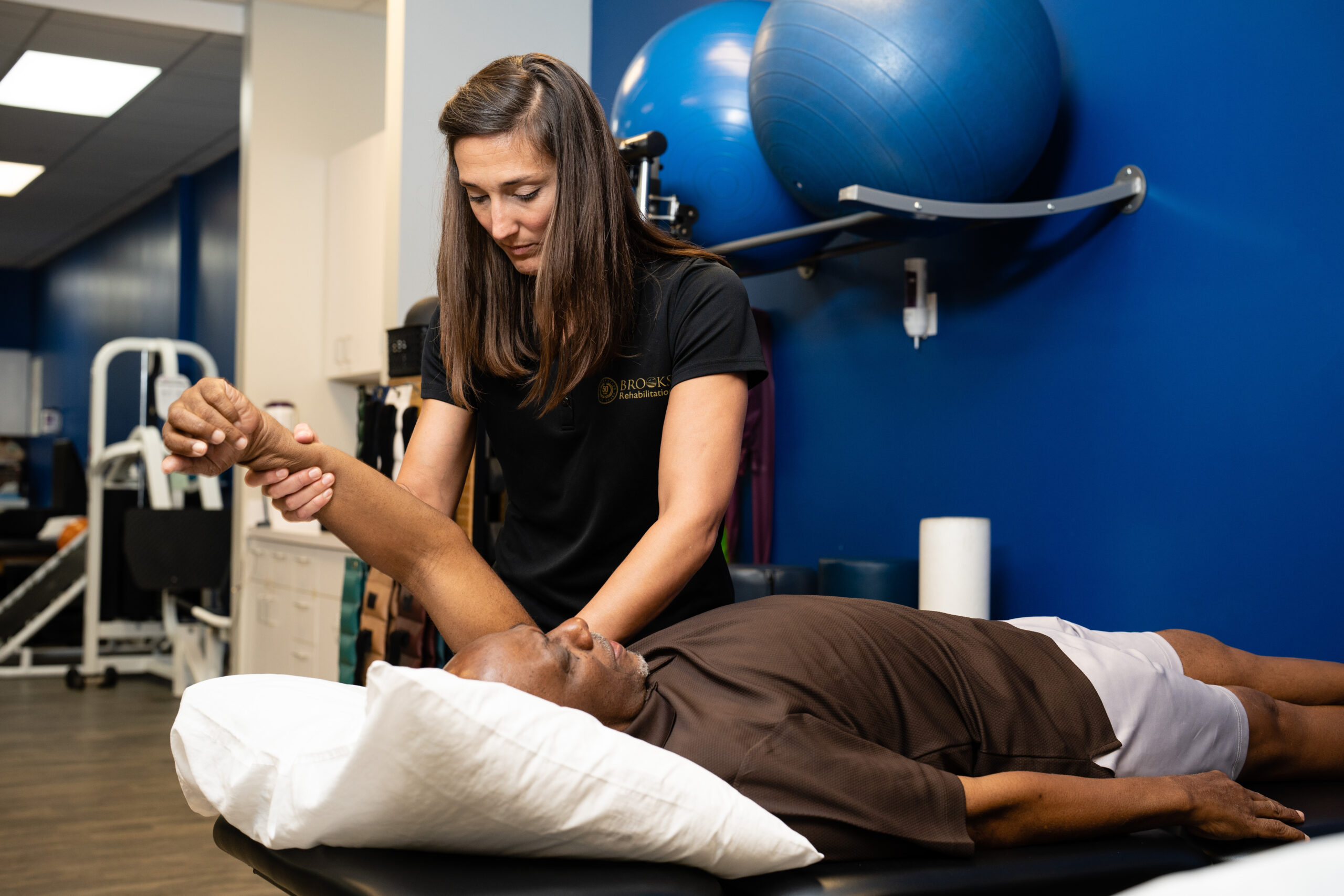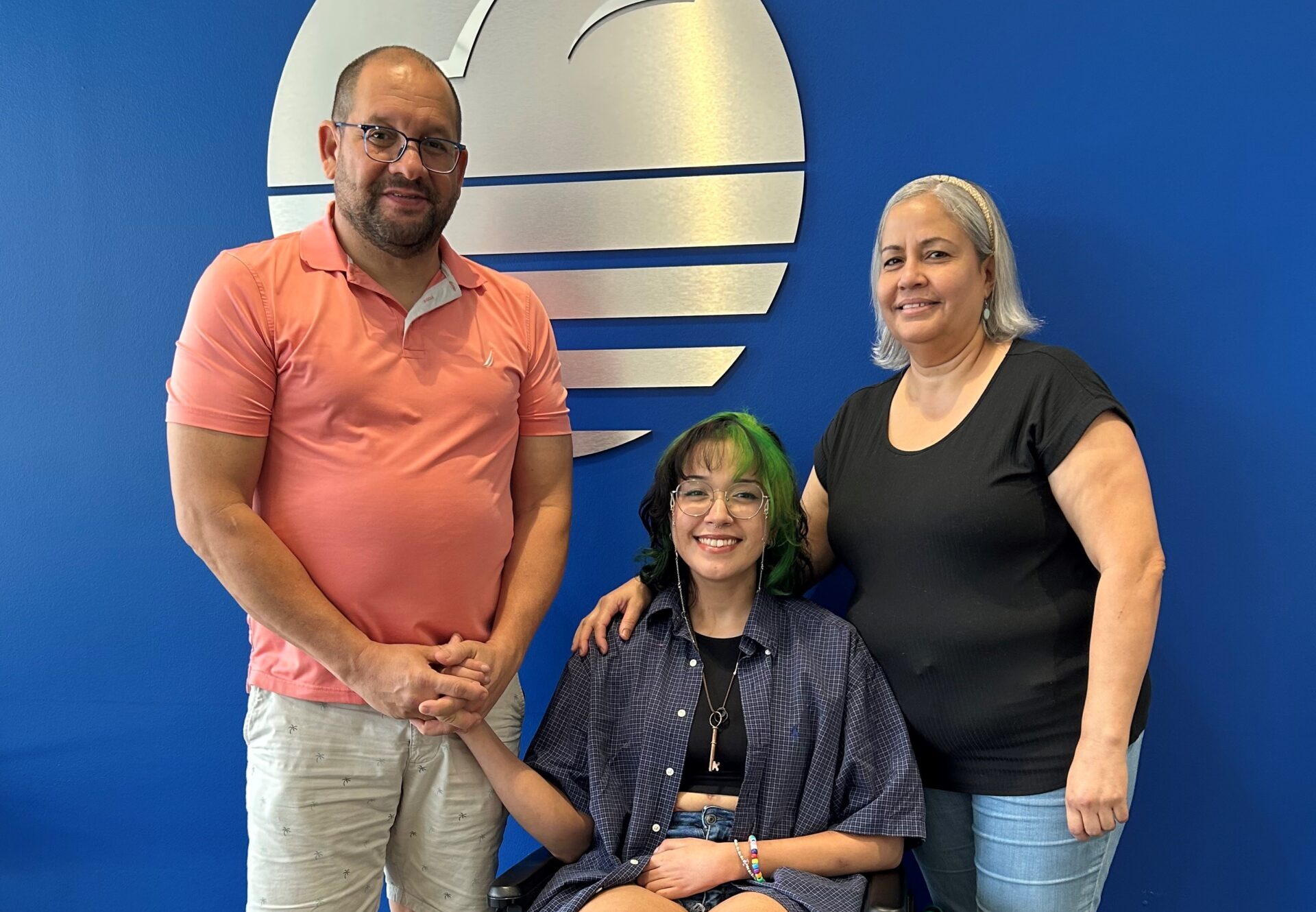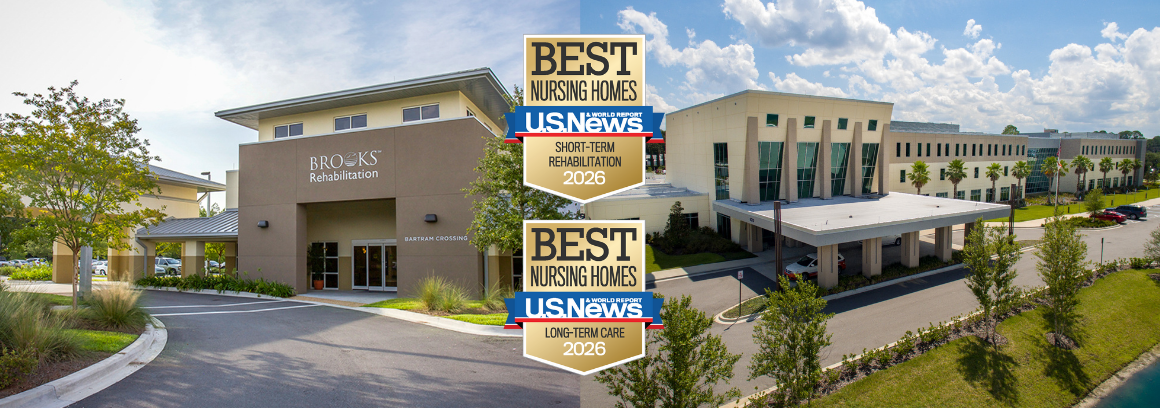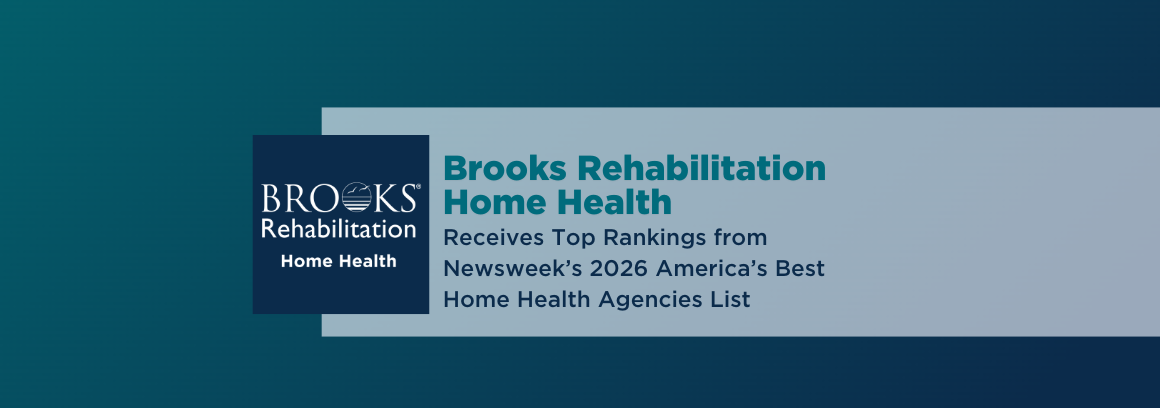What Is Joint Replacement Recovery?
Joint replacement recovery is a structured rehabilitation process that promotes healing and helps you get the most out of your new joint. It involves outpatient physical therapy focusing on improving strength, mobility and function, while reducing pain and stiffness. These services also help you safely return to your daily routine.
Who Is Joint Replacement Recovery For?
This service is for people who have recently undergone hip, knee or shoulder replacement surgery. Outpatient physical therapy is typically the next step after your orthopedic surgeon clears you for more active rehabilitation. Joint replacement recovery is especially helpful if you’re still experiencing pain, stiffness or mobility limitations.
Physical Therapy After Hip Replacement Surgery
Recovery focuses on helping you move confidently and avoiding long-term mobility issues.
Outpatient physical therapy after a hip replacement helps you:
- Address leg length differences or balance issues
- Improve hip flexibility and muscle strength
- Learn safe ways to bend, sit and get out of a chair
- Reduce pain and stiffness during everyday movement
- Walk safely without limping or favoring one side
Physical Therapy After Knee Replacement
Knee replacement recovery focuses on restoring range of motion and building leg strength.
Outpatient physical therapy after a knee replacement helps you:
- Improve strength in different parts of the leg, such as your quadriceps, hamstrings and calves
- Learn safe techniques for getting out of a car, in or out of the shower, or sitting down
- Practice complex movements, such as navigating stairs or curbs
- Rebuild balance and coordination to prevent falls during everyday movement
- Regain mobility in your knee
Physical Therapy After Shoulder Replacement
Physical therapy after shoulder replacement helps you regain arm mobility, improve posture and prevent compensation patterns that lead to pain or dysfunction.
Outpatient physical therapy after a shoulder replacement may help you:
- Improve posture and body mechanics for arm use
- Learn to move your arm without overworking muscles in your neck or upper back
- Reduce pain with daily activities like dressing or reaching
- Restore shoulder range of motion without straining the joint
- Strengthen the muscles of the shoulder, including the rotator cuff and the muscles controlling the shoulder blade
Easy Access, Close to Home
With more than 50 physical therapy locations across Florida, Brooks makes it easy to find care close to home. Many clinics offer extended weekday hours, so you can schedule visits before or after work. And you might not need a referral to start treatment, depending on your insurance. Direct access to our physical therapists can help you feel better sooner. Become a patient.
Why Choose Brooks Rehabilitation for Joint Replacement Recovery?
Physical therapists with advanced training in orthopedic rehabilitation guide your joint replacement recovery. They understand how to restore strength and mobility while protecting your new joint. This expertise enables them to spot subtle movement issues that could delay healing or increase the risk of re-injury. You also have access to specialized care that’s not widely available.
Highlights of our program include:
- Balance therapy: After a hip or knee replacement, changes in how you move or hesitation to put weight on your new joint, can throw off your sense of balance. This specialized form of physical therapy supports safe walking, builds confidence and helps lower your risk of falling. Learn more about balance and vestibular therapy.
- Motion analysis: Habits like limping or unnatural movements to avoid pain can be difficult to break after joint replacement surgery. We analyze the small details of how you move, so we can correct these patterns. Our approach helps you walk more smoothly, move with less effort and protect other joints.
- Support beyond the clinic: At Brooks, joint replacement recovery doesn’t stop when you leave the therapy gym. We take time to learn how you go about your day. Therapists then offer practical, personalized guidance to help protect your new joint while cooking, getting dressed, running errands or managing other daily routines.
FAQs About Orthopedic Physical Therapy After Joint Replacement
Is physical therapy necessary if I feel fine after joint replacement surgery?
Even if you’re feeling good, you may still benefit from physical therapy. Our team ensures you’re moving safely and not developing movement patterns that could cause problems later on. Orthopedic physical therapists also guide you through exercises that protect your new joint and support long-term strength, balance and mobility.
Can I go back to work or exercise while doing physical therapy?
Many people return to work or light activity while they go through joint rehabilitation recovery. Whether this is an option for you depends in part on the physical demands of your job or other daily activities, and your recovery. Physical therapists at Brooks help find the pace that’s best for your needs and offer tips to keep you moving safely in between sessions.
What should I expect at my first outpatient PT visit after joint replacement?
Your first visit will likely include a full evaluation of how you’re moving, any pain or stiffness you’re feeling and your personal goals. This includes a thorough physical exam to assess the tissue near your new joint. From there, we develop a customized plan tailored to your unique needs.
Request Care at Brooks
Find out more about becoming a patient and learn about orthopedic physical therapy for joint replacement recovey.Latest News and Health Resources
Education and guidance to support your recovery
From Immobility to Possibility: Izzy’s Determination to Reclaim Her Creative Life Following Transverse Myelitis
Last Christmas was supposed to be a time of joy and celebration for Isabel “Izzy” Quezada. Instead, what began as a common case of influenza A would challenge everything she...




